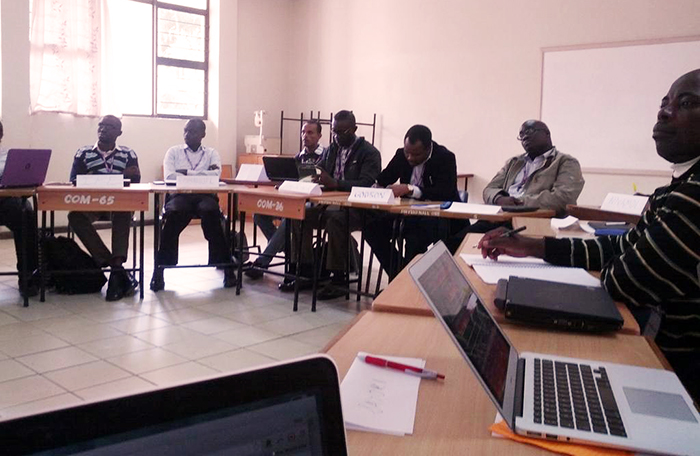Teaching Biostatistics and Epidemiology across Africa


In photo: Day 1 Malawi clinical research methods: developing a good, feasible, research question
Despite a very heavy burden of disease in Africa, the majority of health related research is still conducted outside the continent. One way to improve the knowledge of health and contributors to poor health is to equip clinical staff - including doctors, health care workers and nurses - with basic research skills. This is the objective of an annual epidemiology and biostatistics course run by the University of Malawi and the Pan-Africa Thoracic Society that works to develop research capacity across the continent.
Division of Epidemiology and Biostatistics staff Senior Lecturer Dr Maia Lesosky and research fellow Kirsty Brittain recently travelled to Malawi to teach over 50 clinical researchers from across Africa for the course.
Clinical research in this group tends to be focused on the main drivers of respiratory illness, including indoor and outdoor biomass pollution and tuberculosis. Course content includes study design, measurement in research, sample size estimation, and data analysis. Students leave the course with a feasible research project that many manage to carry out and publish, contributing to meaningful knowledge.
A lack of training opportunities at many African institutions means the course is an important undertaking. “Epidemiology and biostatistics in particular are scarce skills, and teaching them well is challenging. There is a need to build a platform of teaching capacity at institutions across the region, in addition to training scientists” says Dr Lesosky.
Over time, the course has evolved to include former students as faculty, resulting in a majority of African-based faculty. This year junior Biostatisticians/Epidemiologists were brought in to help develop skills in collaboration/teaching along with the clinical researchers.
“In time, the plan is to build a generation of clinical researchers who understand the importance of research in improving health and have the tools to carry quality research out in a local and relevant context” says Dr Lesosky. With consistently positive feedback and plenty of eager students willing to take part the course continues to make an impact on the production of well-equipped African researchers.